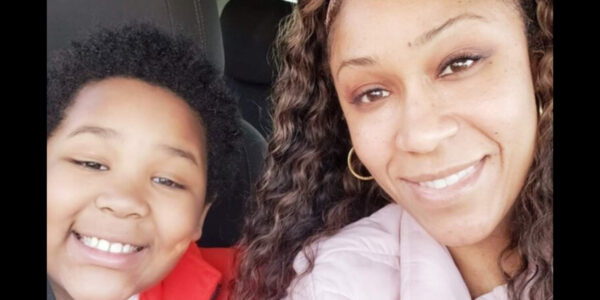Judge Denies $100 Bail Request from ‘Piggy Bank’ for 10-Year-Old Charged as Adult In Mother’s Murder Over VR Headset
A bond reduction request by the defense lawyer representing a 10-year-old boy accused of fatally shooting his mother because she would not order him a virtual reality headset has been denied.
The attorney said the child cannot afford the set bond and requested it lowered from $50,000 to $100, the amount of money in his piggy banks.
Attorney Angela Cunningham made the request during a Dec. 14 hearing, stating her underage client, who is being charged as an adult in accordance with Wisconsin law, has no source of income to meet the bond set for his release.
According to Cunningham, the only money the child has is his savings and he hoped that would be enough for the court to consider his plight.
“My team and I have spoken to him about his ability to post anything. He told us about piggy banks with savings that he had from gifts, from birthday gifts and scavenging through cushions in the couch that he’s been able to save up,” Cunningham said in court, according to TMJ 4.
Presiding Judge Jane Carroll said the decision was based not only on how horrible the crime was, noting that “the victim was shot at very close range in the head,” but because there is a concern about where the boy would go and who would care for him.
Carroll added an additional caveat to the boy’s bond order, ordering if he were to make bail, he would have to remain in Milwaukee County.
The hearing was the child’s first court appearance.
A criminal complaint states on Monday, Nov. 21, the boy fatally shot his mother the morning after the two argued about her buying him a virtual reality headset.
While the crime was heinous, family members assert the child has for years suffered from severe mental health issues. His behavior, rooted in his unnamed psychological disorders, led his mother to place cameras throughout the home to monitor him.
Despite his age, prosecutors charged the boy as an adult with two counts: first-degree reckless homicide, which carries a maximum prison sentence of 60 years, or, in the alternative, first-degree intentional homicide, which carries a maximum sentence of life. In the state, any perpetrator of a murder older than 10 is automatically sent to adult court.
If the boy does not post bond and is convicted of intentional homicide, it is possible he will never see outside of prison for the rest of his life.
WPR interviewed some legal experts and activists who are protesting the Wisconsin law that treats juvenile offenders as fully developed grown-ups, saying it is impossible to endure criminal culpability in the same way as adults.
Ion Meyn, an assistant professor of law at the University of Wisconsin-Madison, said the law is “irresponsible.”
“The science is finding that in many respects, it’s irresponsible to decide that a child should be incarcerated for conduct,” Meyn believes.
“If they [Wisconsin] were to end up trying the child as an adult, as a 10-year-old adult, it would really be out of step with the way the world thinks about culpability … not even just the country, but the world,” Jyoti Nanda, a law professor at Golden Gate University in San Francisco who studies juvenile justice issues across the world, said. “Their [children’s] ability to develop intent is different, their ability to make decision-making is different than it is for adults because we know that about their brain development.”
Sharlen Moore, the director of Youth Justice Milwaukee, said she is shocked at how the case is being handled.
“I was shocked,” Moore said. “Especially knowing that this young person had mental issues … but even regardless of that, we should never be trying children as adults.”
Wisconsin is not the only state with laws like this on the books. According to The National Juvenile Justice Network, 24 of the country’s 50 states have no minimum age for prosecuting children. Of the remaining 26, many others prosecute minors ranging from 8 to 13 years of age as adults.
Nanda is asking the state to reexamine the law, questioning how fair these laws are to children.
“This is an opportunity for us to reexamine our laws and also just the inconsistency that we have with this patchwork across the country,” Nanda said.
The Wisconsin Alliance for Youth Justice (WayJ) expressed a similar position in a statement, writing, “WayJ believes that a 10-year-old should never be treated as an adult. Ten-year-olds are still learning their feelings, how to sort them and they need support to do that.”
Evidence of the challenge the courts have when treating a 10-year-old as an adult bubbled up during Wednesday’s hearing when the judge asked, “Do you understand we’re in juvenile court, but this is an adult court proceeding?”
The defense asked the court to consider dismissing the second count of reckless homicide, stating it was redundant. Carroll said she would make a decision at an upcoming hearing, according to ABC 7.
Cunningham waived the right to a speedy preliminary hearing for additional discovery, which would allow for the next hearing to be held within the next ten days and before the end of the year.
As a result of this move, the child will return to court on Jan. 19, 2023.

